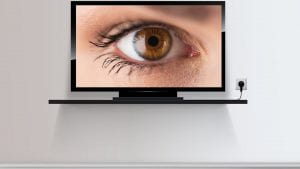Whenever I think of Google and Facebook, I normally think of a harmonious relationship. I think of two companies who can highly benefit from each other whether for good or for bad. Well, that was until now.
A new and upcoming privacy change has Facebook not too happy with Apple right now. The update of IOS 14, will give you an update/prompt on what apps are tracking your buys and searches. Seemingly, not a big deal as a lot of apps do that, but now we will be given the option to turn that off. Faebook has not been too happy about this change because that defeats their purpose of targeted ads, which they spend over 86 billion dollars on. While Apple may have good intentions with this change, they completely disregarded all their past relations with other apps on the phone. While this may not affect your screen on Facebook, it will certainly affect them. Facebook claims that this change could not only damage the app but also damage other small businesses and shops that use Facebook. Apple argues that this is a right to privacy that most people should be in control over. So, What do you think? Is Facebook overreacting or is Apple in the wrong?
Cite: https://www.cnet.com/news/facebook-vs-apple-heres-what-you-need-to-know-about-their-privacy-feud/

